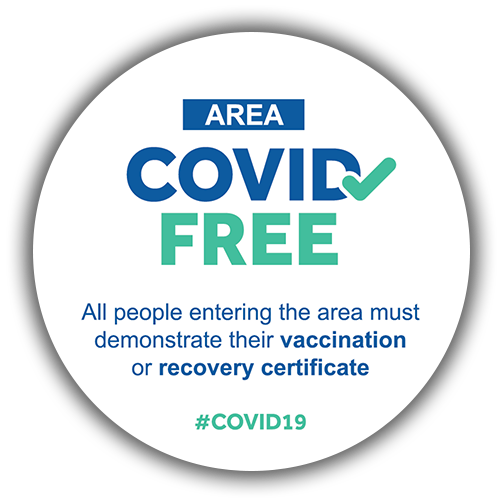Privacy Policy
We are very happy that you showed interest in our website. Data protection is especially important for managing Gameathlon. The use of our pages is possible without the indication of personal data. However, if a data subject wants to use special services through our website, it may be necessary to process personal data. If the processing of personal data is necessary and there is no legal basis for such processing, we generally obtain the data subject’s consent.
The processing of personal data, such as the name, address, e-mail address or telephone number of a data subject, must always comply with the General Data Protection Regulation (GDPR) and in accordance with the specific for each country data protection regulations applicable to the Gameathlon. With this data protection statement, our company would like to inform the general public about the nature, scope and purpose of the personal data we collect, use and process. In addition, the data subjects are informed, through this data protection declaration, of the rights to which they are entitled.
As an auditor, Gameathlon has implemented numerous technical and organizational measures to ensure the fullest protection of the personal data processed through this website. However, Internet-based data transmissions may have security vulnerabilities, so full protection is not guaranteed. For this reason, every data subject is free to transfer personal data to us through alternative means, e.g. by phone.
1. Definitions
The Gameathlon data protection declaration is based on the terms used by the European legislature to approve the General Data Protection Regulation (GDPR). The privacy statement must be legible and understandable to the general public, as well as to our customers and business partners. To ensure this, we would first like to explain the terminology we used.
In this data protection statement, we use, inter alia, the following terms:
-
a) Personal data
“Personal data” means information relating to a natural person who has been identified or can be identified (“the person to whom the data relates”). An identifiable natural person is a person who can be identified, directly or indirectly, in particular by reference to an identifier such as a name, an identification number, position data, an electronic identification code or one or more factors related to the physical, physiological, genetic, intellectual, economic, cultural or social identity of this natural person.
-
b) The data subject
The data subject is any natural person who is identified or can be identified, his personal data are processed by the controller.
-
c) Processing
Processing means any operation or set of operations performed on personal data or on personal data sets, whether automated or not, such as collection, recording, organization, configuration, storage, adaptation or modification, retrieval, consultation, use, disclosure , dissemination or other disposal, alignment or combination, restriction, deletion or destruction.
-
d) Restriction of processing
Restriction of processing is the labeling of stored personal data in order to limit their processing in the future.
-
e) Profile
Profile means any form of automated processing of personal data consisting of the use of personal data for the evaluation of certain personal data relating to a natural person, in particular for the analysis or prediction of aspects relating to the performance of the natural person at work, financial status; health, personal preferences, interests, credibility, behavior, location or movements.
-
f) Nickname
Aliasing is the processing of personal data in such a way that personal data can no longer be attributed to a particular data subject without the use of additional information, provided that such additional information is kept separately and subject to technical and organizational measures for ensure that personal data is not attributed to a recognized or identifiable natural person.
-
g) Auditor or auditor responsible for processing
The controller or controller is the natural or legal person, public authority, body or other body which, alone or in association with others, determines the purposes and means of processing personal data. where the purposes and means of such processing are determined by the law of the Union or of the Member State, the controller or the specific criteria for his appointment may be laid down in the law of the Union or of the Member States.
-
h) Processor
The processor is a natural or legal person, public authority, service or other entity that processes personal data on behalf of the controller.
-
i) Recipient
The recipient is a natural or legal person, public authority, organization or other entity to which personal data are disclosed, whether or not it is a third party. However, public authorities which may receive personal data in the context of a specific investigation under Union or Member State law shall not be considered beneficiaries. the processing of this data by those public authorities must be in accordance with the applicable data protection rules in accordance with the purposes of the processing.
-
j) Third part
Third party is a natural or legal person, public authority, body or body other than the data subject, the controller, the processor and the persons who, under the direct authority of the controller or processor, have a data processing authorization. personal.
-
k) Consent
The consent of the data subject is any free, specific, up-to-date and clear indication of the data subject’s wishes by which he or she, by declaration or clear affirmative action, agrees to the processing of the personal data concerning him or her.
2. Name and address of the auditor
The controller for the purposes of the General Data Protection Regulation (GDPR), other data protection laws in force in the Member States of the European Union and other data protection provisions are:
COWBOY TV ANDREAS DERDEMEZIS
Karpathos 54
145 62 Kifissia Attica
Hellas
Telephone: 210 6149074.
Email: kgerakoulias@gmail.com
Website: gameathlon.eu
3. Cookies
The pages use cookies. Cookies are text files that are stored on a computer system through an Internet browser.
Many websites and servers use cookies. Many cookies contain a so-called cookie ID. The cookie ID is a unique cookie ID. It consists of a string of characters through which Internet pages and servers can be assigned to the specific Internet browser in which the cookie was stored. This allows websites and servers that visit the Internet to differentiate the individual data browser from other Internet browsers that contain other cookies. A specific Internet browser can be identified and authenticated using the unique cookie ID.
Through the use of cookies, Gameathlon may provide the users of this website with more user-friendly services that would not be possible without the cookie setting.
Through a cookie, the information and offers on our website can be optimized based on the user. Cookies allow us, as mentioned above, to identify the users of our website. The purpose of this recognition is to make it easier for users to use our site. The user of the website that uses cookies, e.g. it does not need to enter access data every time the site is accessed, as this is taken over by the site and the cookie is stored on the user’s computer system. Another example is the cookie of a shopping cart in an online store. The online store remembers the articles that the customer has placed in the virtual shopping cart via a cookie.
The data subject may, at any time, prevent the setting of cookies through our website through a corresponding setting of the Internet browser used and therefore may permanently refuse the setting of cookies. In addition, cookies already set can be deleted at any time via an Internet browser or other software. This is possible in all popular Internet browsers. If the person to whom the data relates disables the setting of cookies in the used Internet browser, it is not possible to use all the functions of our website.
4. Collection of general data and information
The Gameathlon.eu website collects a set of general data and information when a data subject or automated system calls the site. This general data and information is stored in server logs. The collection can be (1) the types and versions of browsers used, (2) the operating system used by the access system, (3) the site from which an access system to our website arrives (so-called referrals ), (4) (5) date and time of access to the Website, (6) Internet Protocol address (IP address), (7) Internet Service Provider of the Access System and (8) any other similar data and information that may be used in the event of attacks on our information technology systems.
When you use this general data and information, Gameathlon does not draw conclusions about the data subject. This information is necessary for (1) the proper promotion of our website content, (2) optimizing our website content and advertising, (3) ensuring the long-term viability of IT and website technology systems, and ( 4) provide law enforcement authorities with the necessary information for criminal prosecution in the event of cyber attacks. Therefore, Gameathlon statistically analyzes anonymous data and information, with the aim of increasing the data protection and data security of our business and ensuring the best level of protection of the personal data we process.
5. Register on our website
The data subject has the ability to register on the webmaster’s website with a personal data indication. Which personal data is transmitted to the controller is determined by the corresponding input mask used for recording. The personal data entered by the data subject are collected and stored exclusively for internal use by the controller and for his own purposes. The controller may request the transfer to one or more processors (eg a parcel service) which also uses personal data for internal purposes, which is attributed to the controller.
By registering on the webmaster’s website, the IP address assigned by the Internet Service Provider (ISP) is also stored and used from the date the data was submitted and from the time of registration. The storage of this data is based on the fact that this is the only way to prevent the misuse of our services and, if necessary, to make it possible to investigate the crimes committed. If the storage of this data is necessary to secure the controller. This data is not transferred to third parties unless there is a legal obligation to transmit the data or if the transfer serves the purpose of criminal prosecution.
The registration of the data subject, with the voluntary indication of personal data, is intended to enable the controller to offer in the data object content or services that can only be offered to registered users due to the nature of the issue. Registered persons are free to change at any time the personal data identified during registration or to delete it completely from the data warehouse of the controller.
The controller must at any time provide information, upon request, to each data subject regarding the stored personal data about the data subject. In addition, the controller corrects or deletes personal data at the request or indication of the data subject, if there are no mandatory storage obligations. All the employees of the head of the audit service are available to the specific person as contact persons.
6. Regular deletion and exclusion of personal data
The controller processes and stores the personal data of the data subject only for the time necessary to achieve the storage purpose or if it is granted by the EU legislature or other lawmakers in laws or regulations to which the controller is subject to the.
If the purpose of storage is not applicable or if the storage period laid down by the European legislator or other competent legislator expires, personal data are usually excluded or deleted in accordance with legal requirements.
7. Rights of the data subject
-
a) Right of confirmation
Every data subject has the right of the European legislator to receive confirmation from the controller as to whether or not personal data concerning him or her are being processed. If a data subject wishes to make use of this confirmation right, he or she may contact any of the controller staff at any time.
-
b) Right of access
Every data subject has the right granted by the European legislator to obtain from the auditor free information about his personal data stored at any time and a copy of this information. In addition, European directives and regulations give the data subject access to the following information:
- the purposes of the processing
- the categories of relevant personal data
- recipients or categories of recipients to whom personal data has been transmitted or are about to be disclosed, in particular recipients in third countries or international organizations
- where possible, the estimated period for which the personal data are stored or, if not possible, the criteria used to determine that period
- the existence of the right to request from the controller the correction or deletion of personal data or the restriction of the processing of personal data concerning the data subject or to oppose such processing
- the existence of the right to lodge a complaint with a supervisory authority
- when personal data is not collected by the data subject, the available information about their source
- the existence of automated decision-making, including formatting, referred to in Article 22 (1) and (4) of the GDPR and, at least in such cases, important information on the relevant logic, .
-
In addition, the data subject has the right to receive information on whether personal data is transferred to a third country or to an international organization. In this case, the data subject has the right to be informed of the appropriate transferability
If a data subject wishes to exercise this right of access, he or she may at any time contact any employee of the controller.
-
c) Right of correction
- Every data subject has the right of the European legislator to receive from the controller, without undue delay, the correction of inaccurate personal data concerning him. Taking into account the purposes of the processing, the data subject has the right to have completed incomplete personal data, including the provision of a supplementary declaration.
- If a data subject wishes to exercise this right of correction, he or she may at any time contact any employee of the controller.
d) Right to delete (Right to be forgotten)
Every data subject has the right to ask the European legislator to delete the personal data concerning him / her without undue delay and the controller is obliged to delete the personal data without undue delay when one of the following reasons applies if processing is not necessary:
- Personal data are no longer necessary for the purposes for which they were collected or otherwise processed.
- The data subject shall withdraw the consent on which the processing is based in accordance with Article 6 (1) (a) of the GDPR or Article 9 (2) (a) of the GDPR and if there is no other legal basis for the processing.
- The data subject shall challenge the processing in accordance with Article 21 (1) of the GDPR and there shall be no compelling legal grounds for the processing or the data subject shall refute the processing in accordance with Article 21 (2) of the GDPR.
- Personal data has been processed illegally.
- Personal data must be deleted in order to comply with a legal obligation of the Union or of a Member State to which the controller is subject.
- Personal data were collected in connection with the provision of information society services referred to in Article 8 (1) of the GDPR.
-
If one of the above reasons applies and a data subject wishes to request the deletion of personal data stored by Gamethlon, he may at any time contact any employee of the auditor. A Gamethlon employee will promptly comply with the deletion request immediately.
Where the controller has disclosed personal data and is required to delete the personal data in accordance with Article 17 (1), the controller, taking into account the available technology and implementation costs, shall take reasonable steps, including technical measures, personal data processors that the data subject has requested that such controllers delete any link or copy or reproduce such personal data, unless processing is required. Gamethlon staff will arrange the necessary measures on an individual basis .
-
e) Right to restrict processing
Each data subject has the right granted by the European legislator to obtain a processing restriction from the controller when one of the following applies:
- The accuracy of the personal data is disputed by the data subject, for a period that allows the auditor to verify the accuracy of the personal data.
- The processing is illegal and the data subject opposes the deletion of personal data and instead seeks to restrict their use.
- The controller no longer needs the personal data for processing purposes, but is required by the data subject to make, exercise or defend legal claims.
- The data subject has objected to the processing under Article 21 (1) of the GDPR pending verification as to whether the legitimate reasons of the controller outweigh those of the data subject.
-
If one of the above conditions is met and a data subject wishes to request a restriction on the processing of personal data stored by Gamethlon, he or she may at any time contact any employee of the controller. The Gamethlon employee will arrange the processing restriction.
-
f) Right to transfer data
Every data subject has the right of the European legislator to receive personal data concerning him / her, which are provided in a processable, structured, widely used and machine-readable form. It shall have the right to transfer this data to another controller without prejudice to the controller to whom the personal data have been provided, provided that the processing is based on consent in accordance with Article 6 (1) (a) of the GDPR or Article 9 (9). 2 (a) of the GDPR or in a contract pursuant to Article 6 (1) (b) of the GDPR and processing shall be by automated means;
In addition, in exercising his right to data portability in accordance with Article 20 (1) of the GDPR, the data subject shall have the right to transfer personal data directly from one controller to another, if technically feasible and when they adversely affect the rights and freedoms of others.
In order to claim the right to transfer data, the data subject can contact any Gamethlon employee at any time.
-
g) Right of objection
Every person to whom the data relates has the right of the European legislature to put forward, at any time, reasons relating to his particular situation, the processing of personal data concerning him, which is based on point (e) or (f)) of Article 6 paragraph 1 of the GDPR. This also applies to features based on these provisions.
Gamethlon will no longer process personal data in the event of an objection, unless we can prove compelling legal reasons for processing that overrides the data subject’s interests, rights and freedoms or for establishing, exercising or defending legal claims.
If Gamethlon processes personal data for the purpose of direct marketing, the data subject has the right to object at any time to the processing of personal data relating to that marketing. This applies to the definition of the profile, insofar as it relates to direct marketing. If the data subject objects to Gamethlon being processed for direct marketing purposes, Gamethlon will no longer process the personal data for that purpose.
In addition, the data subject has the right, for reasons related to his particular situation, to object to the processing of personal data concerning him by Gamethlon for scientific or historical purposes or for statistical purposes in accordance with Article 89 (1) of the GDPR, unless the processing is necessary to perform a task performed in the public interest.
To exercise the right of objection, the data subject can contact any Gamethlon employee. In addition, the data subject is free to use information society services and, despite Directive 2002/58 / EC, to exercise his right to object by automated means using technical specifications.
-
h) Automated individual decision making, including profile
Every data subject has the right of the European legislature not to be subject to a decision based solely on automated processing, including formatting, which produces legal effects for itself or significantly affects it, unless decision (1) is necessary for the conclusion or performance of a contract between the data subject and a controller or (2) is not permitted by the law of the Union or of the Member State to which the controller is subject and which also provides for appropriate the rights and freedoms and legitimate interests of the data subject or (3) is not based on the express consent of the data subject.
If decision (1) is necessary for the conclusion or performance of a contract between the data subject and a data controller or (2) is based on the express consent of the data subject, Gamethlon shall take appropriate measures to safeguard the rights and freedoms and the legitimate interests of the data subject, at least the right of human intervention by the controller, to express his opinion and to challenge the decision.
If the data subject wishes to exercise his / her rights regarding automated individual decision making, he / she can contact any Gamethlon employee at any time.
-
i) Right to withdraw data protection consent
Every data subject has the right granted by the European legislature to withdraw his or her consent to the processing of his or her personal data at any time.
If the data subject wishes to exercise the right to withdraw consent, he or she may at any time contact any Gamethlon employee.
8. Data protection regarding the application and use of Facebook
On this website, the auditor has embedded Facebook business details. Facebook is a social network.
A social network is a place for social networking on the Internet, an online community that typically allows users to interact with each other and interact in a virtual space. A social network can serve as a platform for the exchange of views and experiences or allow the Internet community to provide personal or business information. Facebook allows social network users to include creating private profiles, uploading photos, and networking through friend requests.
Facebook is owned by Facebook, Inc., 1 Hacker Way, Menlo Park, CA 94025, United States. If one lives outside the United States or Canada, the controller is Facebook Ireland Ltd., 4 Grand Canal Square, Grand Canal Harbor, Dublin 2, Ireland.
With each invitation to one of the individual web pages of this web site, which is operated by the controller and in which a Facebook component (plug-ins) is integrated, the web browser in the subject IT system will automatically ask you to do so. download the corresponding Facebook component from Facebook via the Facebook component. An overview of all Facebook plugins can be found at https://developers.facebook.com/docs/plugins/. During this technical process, Facebook is informed of the specific sub-site of our website that the data subject visited.
If the person who is logged in to Facebook at the same time, Facebook detects with each invitation to our site from the person to whom the data refers and for the entire duration of their stay on our site the specific subsystem of the Internet page visited the data subject. This information is collected through the Facebook component and linked to the data subject’s respective Facebook account. If the data subject clicks on one of the Facebook buttons embedded in our website, e.g. the “Like” button or if the person submitting a comment submits the comment to Facebook, then Facebook matches this information to the user’s user’s personal account and stores the personal data.
Facebook always receives, through the Facebook component, information about a visit to our website from the data subject, each time it connects simultaneously with the person on Facebook during the invitation to our website. This happens regardless of whether the data subject clicks on Facebook or not. If such a transfer of information to Facebook is not desirable for the data subject, then he or she can prevent this by removing them from their Facebook account before making a call to our site.
The Facebook Data Protection Guide, available at https://facebook.com/about/privacy/, provides information on the collection, processing and use of personal data by Facebook. In addition, it explains what configuration options Facebook offers to protect the data subject’s privacy. In addition, various configuration options are available that allow you to eliminate data transmission on Facebook. These applications can be used by the data subject to eliminate data transmission on Facebook.
9. Data protection on the application and use of Google Analytics (with anonymization function)
On this site, the controller has integrated the Google Analytics component (with the anonymizer function). Google Analytics is a web analytics service. Web analytics is the collection, collection, and analysis of data about site visitor behavior. A web analytics service collects, among other things, data about the site a person came from (the so-called referral), which subpages they visited, or how often, and for how long a subpage is displayed. Web analytics is mainly used to optimize a website and to conduct cost / benefit analysis of online advertising.
Google Analytics is owned by Google Inc., 1600 Amphitheater Pkwy, Mountain View, CA 94043-1351, United States.
For web analytics through Google Analytics, the controller uses the “_gat. _anonymizeIp ». With this application, the IP address of the data subject’s Internet connection is restricted by Google and is anonymous when accessing our websites by a Member State of the European Union or another Contracting Party to the Agreement on the European Economic Area.
The purpose of the Google Analytics component is to analyze traffic to our site. Google uses the data and information collected, among other things, to evaluate the use of our website and to provide online reports, which show the activity on our websites and to provide other services related to the use of our website for us.
Google Analytics places a cookie on the data subject’s information technology system. The definition of cookies is explained above. By setting the cookie, Google has the ability to analyze the use of our website. With each invitation to one of the individual pages on this web site, which is operated by the controller and which incorporates a component of Google Analytics, the web browser in the data subject’s IT system will automatically submit data through its component. Google Analytics for online advertising and Google Settings. During this technical process, Google acquires knowledge of personal information, such as the IP address of the data subject, which is used by Google,
The cookie is used to store personal information, such as the access time, the place from which the access was made and the frequency of visits to our website by the data subject. With each visit to our site, such personal data, including the IP address of the Internet access used by the data subject, will be transmitted to Google in the United States of America. This personal information is stored by Google in the United States. Google may transfer this personal data collected through the technical process to third parties.
The data subject may, as mentioned above, prevent the setting of cookies through our website at any time through a corresponding adjustment of the browser used and therefore permanently refuse the setting of cookies. Such an adaptation to the Internet browser used would also prevent Google Analytics from setting a cookie in the data subject’s information technology system. Additionally, cookies already used by Google Analytics may be deleted at any time through a web browser or other software program.
In addition, the data subject has the ability to object to a collection of data generated by Google Analytics, which is related to the use of this site, as well as the processing of this data by Google and the possibility to exclude any such. To do this, the data subject must download and install a browser add-on to https://tools.google.com/dlpage/gaoptout. This browser add-on tells Google Analytics via JavaScript that any data and information about web page visits may not be transmitted to Google Analytics. Installing add-ons is considered an objection by Google. If the data subject’s computer system is deleted, configured, or installed later, then the data subject must reinstall the browser add-ons to disable Google Analytics. If the browser add-on has been uninstalled by the data subject or by any other person assigned to their area of responsibility or disabled, additional browsers may be reinstalled or reactivated.
More information and applicable Google data protection provisions may be retrieved at https://www.google.com/intl/en/policies/privacy/ and http://www.google.com/analytics/terms / us. html. Google Analytics is further explained at https://www.google.com/analytics/.
10. Data protection devices related to the application and use of Instagram
On this site, the controller has built-in Instagram features. Instagram is a service that can be described as an audiovisual platform, which allows users to share photos and videos, as well as spread such data on other social networks.
The company that takes advantage of the services offered by Instagram is Instagram LLC, 1 Hacker Way, Building 14 First Floor, Menlo Park, CA, UNITED STATES.
Each time you access one of the web pages on this webpage, which is operated by the controller and has an Instagram component (Insta button) embedded, the data browser is automatically requested in the data subject’s computer system to download a screen of the corresponding Instagram Instagram item. During this technical process, Instagram realizes what specific footer of our website the data subject visited.
If the data subject connects to Instagram at the same time, Instagram crawls with each invitation to our site from the data subject and for the entire duration of their stay on our site the specific web page footer visited the data subject. This information is collected through the Instagram component and linked to the data subject’s respective Instagram account. If the data subject clicks on one of the Instagram buttons embedded on our website, then Instagram matches this information with the subject’s personal Instagram account and stores the personal data.
Instagram receives information through the Instagram component to which the data subject visited our site, provided that the data subject is connected to Instagram at the time of the call to our site. This happens regardless of whether the person clicks the Instagram button or not. If such a transfer of information to Instagram is not desirable for the data subject, then he or she can prevent it by withdrawing it from the Instagram account before a call is made to our site.
More information and current Instagram safeguards can be retrieved at https://help.instagram.com/155833707900388 and https://www.instagram.com/about/legal/privacy/.
11. Data protection regarding the application and use of Twitter
On this site, the controller has built-in Twitter features. Twitter is a multilingual microblogging access service with public access, in which users can post and disseminate so-called “tweets”, e.g. text messages, which are limited to 280 characters. These text messages are available to everyone, including those not connected to Twitter. The tweets also appear in the so-called followers of the respective user. The following are other Twitter users who follow a user’s tweets. In addition, Twitter allows you to reach a wide audience through hashtags, links or retweets.
The company that operates on Twitter is Twitter, Inc., 1355 Market Street, Suite 900, San Francisco, CA 94103, UNITED STATES.
With each access to one of the individual pages of this web site, which is operated by the webmaster and has a Twitter component (Twitter button) embedded, the web browser in the data subject’s computer system is automatically prompted to download a screenshot of the corresponding Twitter Twitter component. More information about Twitter buttons is available at https://about.twitter.com/de/resources/buttons. During this technical process, Twitter gains insight into which specific footer of our site the data subject visited.
Εάν το πρόσωπο που έχει συνδεθεί ταυτόχρονα στο Twitter, το Twitter ανιχνεύει με κάθε πρόσκληση στον ιστότοπό μας από το πρόσωπο στο οποίο αναφέρονται τα δεδομένα και για όλη τη διάρκεια της παραμονής τους στον ιστότοπό μας το συγκεκριμένο υποσέλιδα της ιστοσελίδας μας επισκέπτεται το υποκείμενο των δεδομένων. Αυτές οι πληροφορίες συλλέγονται μέσω του στοιχείου Twitter και σχετίζονται με τον αντίστοιχο λογαριασμό Twitter του υποκειμένου των δεδομένων. Εάν το υποκείμενο των δεδομένων κάνει κλικ σε ένα από τα κουμπιά Twitter που είναι ενσωματωμένα στην ιστοσελίδα μας, τότε το Twitter εκχωρεί αυτές τις πληροφορίες στον προσωπικό λογαριασμό Twitter του υποκειμένου των δεδομένων και αποθηκεύει τα προσωπικά δεδομένα.
Twitter receives information through the Twitter component which visits our website the data subject, provided that the data subject is connected to Twitter at the time of the invitation to our website. This happens regardless of whether the person clicks on Twitter or not. If such a transfer of information to Twitter is undesirable for the data subject, then he or she can prevent it by withdrawing it from his or her Twitter account before making a call to our site.
The current Twitter data protection provisions are available at https://twitter.com/privacy?lang=en.
12. Data protection regarding the application and use of YouTube
On this site, the controller has embedded YouTube components. YouTube is a video portal that allows video publishers to define video clips and other users for free, as well as provide free viewing, review, and commentary. YouTube lets you post all kinds of videos so you can access both full movies and TV shows, as well as music videos, trailers, and user-generated videos through the web portal.
The company that operates YouTube is YouTube, LLC, 901 Cherry Ave., San Bruno, CA 94066, UNITED STATES. YouTube, LLC, is a subsidiary of Google Inc., 1600 Amphitheater Pkwy, Mountain View, CA 94043-1351, UNITED STATES.
Each time you access one of the individual pages of this web site, which is operated by the webmaster and has a YouTube component embedded in it (YouTube video), the data subject’s computer browser is automatically prompted to download a screen of the corresponding YouTube item. You can find more information about YouTube at https://www.youtube.com/yt/about/en/. During this technical process, YouTube and Google become aware of the specific subpage of our site that the data subject has visited.
If the person to whom the data relates is linked to YouTube, YouTube recognizes with each call to a subpage that contains a YouTube video, in which specific footer of our site we visited the data subject. This information is collected by YouTube and Google and assigned to the data subject’s respective YouTube account.
YouTube and Google will receive information through the YouTube component that the data subject has visited our site, if the person to whom the data refers at the time of the call to our site is connected to YouTube. this happens regardless of whether the person clicks on a YouTube video or not. If such transmission of this information to YouTube and Google is not desirable for the data subject, delivery may be prevented if the person making the data logs out of his or her own YouTube account before making a call to our site.
YouTube Data Protection provisions, available at https://www.google.com/intl/en/policies/privacy/, provide information about the collection, processing and use of personal data by YouTube and Google .
13. Data protection specifications regarding the application and use of DoubleClick
On this site, the controller has embedded DoubleClick components from Google. DoubleClick is a trademark of Google, under which mainly advertising solutions are marketed to advertising agencies and publishers.
The company that operates DoubleClick from Google is Google Inc., 1600 Amphitheater Pkwy, Mountain View, CA 94043-1351, UNITED STATES.
DoubleClick from Google transmits data to the DoubleClick server with each appearance, click, or other activity. Each of these data transfers triggers a cookie request in the data subject’s browser. If the browser accepts this request, DoubleClick uses a cookie in the data subject’s information technology system. The definition of cookies is explained above. The purpose of the cookie is to optimize and display the ad. The cookie is used, inter alia, to display and place user-related ads, as well as to create or improve reports on ad campaigns. In addition, the cookie is used to prevent the same ad from appearing multiple times.
DoubleClick uses a cookie ID required to perform the technical process. For example, the cookie ID is required to display an ad in a browser. DoubleClick can also use the cookie ID to record ads already displayed in a browser to prevent duplication. It is also possible for DoubleClick to track conversions via the cookie ID. For example, conversions occur when a user has previously displayed a DoubleClick ad and he or she then makes a purchase on the advertiser’s site using the same Internet browser.
A cookie from DoubleClick does not contain personal information. However, a DoubleClick cookie may contain additional campaign IDs. A campaign ID is used to identify campaigns that the user has already contacted.
Each time you access one of the individual pages on this site, which is operated by the controller and in which a DoubleClick component is embedded, the web browser in the data subject’s IT system is automatically prompted by the corresponding DoubleClick component to send data for for the purpose of online advertising and commissioning on Google. During this technical process, Google learns about the data that Google may use to generate procurement calculations. Google may, among other things, understand that the data subject has clicked on specific links on our site.
The data subject may, as mentioned above, prevent the setting of cookies through our website at any time through a corresponding adjustment of the browser used and therefore permanently refuse the setting of cookies. Such an adaptation to the Internet browser used would also prevent Google from placing a cookie on the data subject’s information technology system. Additionally, cookies already used by Google may be deleted at any time through a web browser or other software.
More information and applicable DoubleClick data protection provisions may be retrieved from DoubleClick by Google https://www.google.com/intl/en/policies/
14. Legal basis for processing
Article. 6 GDPR. The GDPR serves as the legal basis for the processing operations for which we obtain consent for a specific processing purpose. If the processing of personal data is necessary for the execution of a contract in which the data subject participates, such as e.g. in the event that processing operations are necessary for the supply of goods or for the provision of any other service, the processing is under Article 6 (1) (a GDPR). The same applies to the processing work required to carry out pre-contractual measures, for example in the case of surveys concerning our products or services. Our company is subject to a legal obligation under which the processing of personal data is required, as for the fulfillment of tax obligations, the processing is based on article. 6 GDPR. In rare cases, the processing of personal data may be necessary to protect the vital interests of the data subject or other natural person. This would happen, for example, if a visitor was injured in our company and the name, age, health insurance data or other vital information would have to be passed on to a doctor, hospital or other third party. The editing will then be based on the article. 6 d GDPR. Finally, the processing work could be based on Article 6 f GDPR. This legal basis is used for processing operations that are not covered by any of the above legal reasons, if the processing is necessary for the purposes of the legitimate interests pursued by our company or by a third party, unless the interests take precedence over the interests or the fundamental rights and freedoms of the data subject which require the protection of personal data. Such processing procedures are particularly permissible because they have been explicitly mentioned by the European legislator. He considered that a legitimate interest could be upheld if the data subject was a client of the controller (recital 47 of the Sixth GDPR Decision). unless the interests take precedence over the interests or the fundamental rights and freedoms of the data subject which require the protection of personal data. Such processing procedures are particularly permissible because they have been explicitly mentioned by the European legislator. He considered that a legitimate interest could be upheld if the data subject was a client of the controller (recital 47 of the Sixth GDPR Decision). unless the interests take precedence over the interests or fundamental rights and freedoms of the data subject which require the protection of personal data. Such processing procedures are particularly permissible because they have been explicitly mentioned by the European legislator. He considered that a legitimate interest could be upheld if the data subject was a client of the controller (recital 47 of the Sixth GDPR Decision).
15. The legitimate interests pursued by the controller or a third party
Where the processing of personal data is based on Article 6 (1) (a). f GDPR our legitimate interest is to carry out our work for the benefit of all our employees and shareholders.
16. Period for which personal data are stored
The criteria used to determine the period of storage of personal data is the corresponding period of compulsory possession. At the end of this period, the corresponding data are normally deleted, since they are no longer necessary for the performance of the contract or the commencement of the contract.
17. Provision of personal data as a mandatory or contractual requirement. Required contract award. Obligation of the data subject to provide personal data. possible consequences of failing to provide such data
Please note that the provision of personal data is required in part by law (eg tax regulations) or may also arise from contractual provisions (eg counterparty information). Sometimes you may need to contract that the data subject provides us with personal data, which must then be processed by us. The data subject is, for example, obliged to provide us with personal data when our company signs a contract with him. Failure to provide personal data will result in the contract not being able to be entered into with the data subject. Prior to the provision of personal data by the data subject, the data subject must contact any employee.
18. Existence of automatic decision making
As a responsible company, we do not automatically use decision making or profiling


































